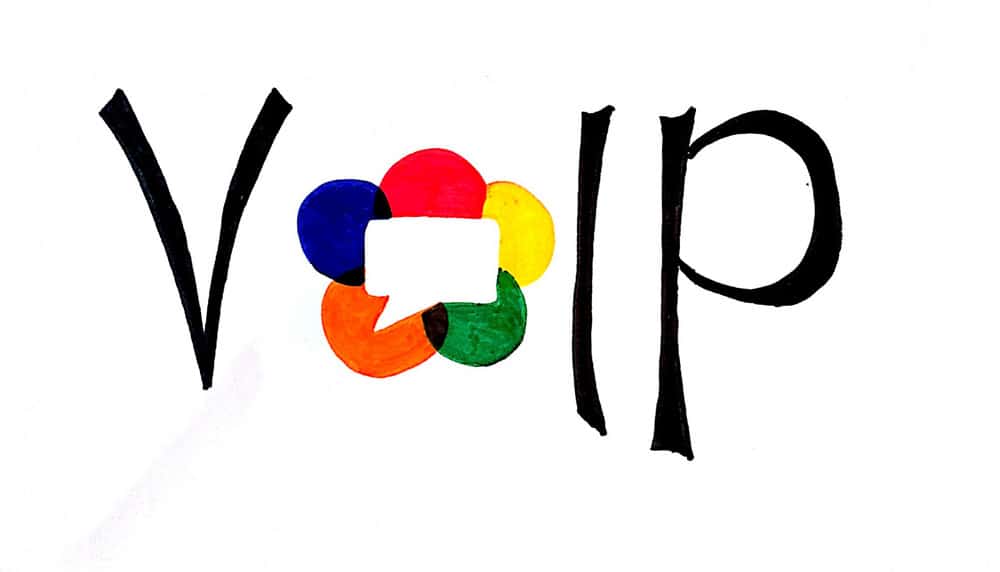By Damien Kicic, digital marketing professional
With worldwide internet speeds and reliability improving, many organisations are considering making the move to an all-VoIP telephony solution.
VoIP phones systems can be either a hosted PBX solution or an onsite IP PBX system. There are many benefits and risks associated with both so it is crucial you understand them before switching to VoIP so you can decide whether it is the right solution for your organisation.
When planned and executed correctly, an all-VoIP phone solution can significantly reduce communications expenditure by up to 50% and can also deliver functionality advantages over traditional PSTN and ISDN telephony.
Below are six key questions to ask when considering the move to VoIP:
1. Are your current phone requirements supported?
VoIP phones can do much more than traditional PABX systems though these additional features are useless if the VoIP system does not support simple functions that your organisation requires.
What functionality do you use currently and will the VoIP system provide the same? If not, is there similar or better functionality that will achieve the same result? How many users will connect internally and externally to the system? How will the VoIP system support teleworkers? Will the system scale with the growth of the organisation? Is full on-site training provided by the supplier or installer of the VoIP system?
2. How secure is the VoIP system?
It is crucial to make sure the security measures of your VoIP provider are both up-to-date and continually improved upon. One potential vulnerability of a VoIP phone system is that, if not properly protected, hackers can find their way in and make unwanted calls from your system.
These unwanted intrusions can often go undetected and allow the hackers to run up thousands of dollars in calls. If you are considering a Hosted PBX solution, these security measures are entirely up to your VoIP provider. When using an onsite IP PBX, some of these security measures will be your responsibility and will require strict firewall policies.
3. Can the system scale or be upgraded?
Many VoIP systems are excellent for scalability and require zero or little upgrades to allow for increases in users or call volumes. Most hosted PBX phone systems can scale to suite any business size. When speaking with a VoIP provider, advise them how many users will be on the system and how many people could potentially be on the phone at any one time.
This information is useful to determine what solution will best suit your needs. For example, you might have to decide between an on-premise IP PBX and or a hosted PBX phone system. It is important to look to the future when it comes to your communications strategy. How you communicate today may be completely different in three years’ time.
Many VoIP systems are excellent for scalability and require zero or little upgrades to allow for increases in users or call volumes
4. What happens if/when the system goes down?
Missed calls can result in thousands or millions of euros’ worth of lost revenue. If the VoIP system goes down a common solution is to automatically forward calls to another network, such as a mobile phone or backup PSTN service.
Ask your VoIP provider what backup measures are available for when either your local internet goes down, when there is a total internet network outage, when there is a local power failure, when the provider’s system/server goes down or when physical on-site hardware fails. Properly configured backup protocols that automatically activate during an outage are essential for running an all-VoIP phone system.
5. Is faxing supported?

Damien Kicic
Sending and receiving faxes over VoIP technology can be both challenging and unpredictable. This is because faxes were designed specifically for analogue networks.
If your organisation relies on fax communication, make sure you have a VoIP capable fax service to meet your requirements. Some providers offer fax conversion services that utilise your existing fax hardware whilst other VoIP providers offer virtual fax solutions that use software.
Get the details about how faxes will work before moving to VoIP to prevent issues arising down the track.
6. Does the VoIP system have a guaranteed uptime?
If the VoIP provider’s system is not accessible, at the very least, you will not be able to make or receive calls. When using a Hosted PBX system, if the provider’s system is down, you will not be able to use the phone system at all – including accessing voicemail.
A guaranteed uptime of 99.99% is equal to 52 minutes of potential downtime over a year. Ask your provider if they provide an uptime guarantee and discuss the impacts a system outage will have on their proposed VoIP solution for your organisation.
About the blogger
Damien Kicic is an all-round digital marketing professional with a keen interest for innovative technology.
Although audio engineering is his true passion, writing about emerging tech trends and gadgets satisfies him just as much.



